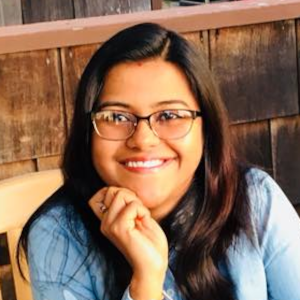Speaker Profile
Biography
I am an Associate consultant and lead AI scientist in Mayo Clinic Arizona. I am affiliated within ASU School of Computing and Augmented Intelligence. Before joining Mayo clinic, I was working as an Assistant Professor in Emory University with joint affiliation in Georgia Tech. I did my postdoc training from Biomedical data science department at Stanford University and completed my doctoral degree in Computer Science as a Marie Curie fellow from National Council of Research, Italy. My current research is focused on unstructured medical data analysis and integration of multisource medical data from varying hospital systems for building predictive model to benefit cancer diagnosis and treatment. I successfully lead multiple federal and non-federal research projects related to machine and deep learning based research projects. I am currently leading multiple innovative multi-institutional research projects related to cancer informatics which involves both academic (Emory, Duke, Stanford, Harvard, Intermountain, IU) and industrial (Philips, GE healthcare) partners.
Talk
Fusion of Multi-modal Data for Clinical Event Prediction
Even though advancements in deep learning techniques carry the potential to make significant contributions to healthcare, most of current models consider only a single input data stream without incorporating data that can inform clinical context. Yet in practice, non-imaging data based on the clinical history and laboratory data enable physicians to interpret imaging findings in the appropriate clinical context, leading to a higher diagnostic accuracy. Models must also achieve the capability to process contextual clinical data in addition to pixel or other sensor data. This talk will present multiple fusion machine learning methodologies including graph-based models, with boosted performance by integrating the clinical context with the imaging data applied to different clinical context.
Session Abstract – PMWC 2022 Silicon Valley
Track Chairs:
Sharmila Majumdar, UCSF
The use of Artificial Intelligence (AI) in diagnostic medical imaging is undergoing extensive evaluation. AI has shown impressive accuracy and sensitivity in the identification of imaging abnormalities and promises to enhance tissue-based detection and characterization. This track will explore technical advancements in clinical machine learning and use cases in radiology.
Sessions:
- AI Roadmap: Opportunities and Challenges (PANEL)
Session Chair: Sean Khozin, CancerLinQ
- Matthew Lungren, AWS
- Patrick Loerch, Gilead
- Greg Yap, Menlo Ventures
- Lydia The, McKinsey & Company
- Chris Gibson, Recursion
- Andrea Mazzocchi, Known Medicine - Actionable AI: Empowering the Stewards of Precision Medicine
- Martin Stumpe, Tempus - Technical Advancements in Clinical Machine Learning - What's New in 2022 (PANEL)
Session Chair: Sharmila Majumdar, UCSF
- Matthew Lungren, AWS - Jayashree Kalpathy-Cramer, Harvard
- John Mongan, UCSF - Image Applications for Clinical Diagnosis
Session Chair: Esther L. Yuh, UCSF
- Thorsten Fleiter, U. of Maryland
- Imon Banerjee, Mayo Clinic
- Pratik Mukherjee, UCSF
- Lawrence Schwartz, Columbia University Medical Center
- Rakesh Shiradkar, Case Western Reserve University - The Impact of AI and High-Resolution Digital Slide Imaging
Session Chair: Ryan Davis, Epredia
- Andy Moye, Paige
- Thomas Westerling-Bui, Aiforia
Session Chair: Fatemeh Zabihollahy, UCLA
- Mirabela Rusu, Stanford
- Mona Flores, NVIDIA
- Kilian Koepsell, Caption Health
- Eric Horler, AIQ Solutions











